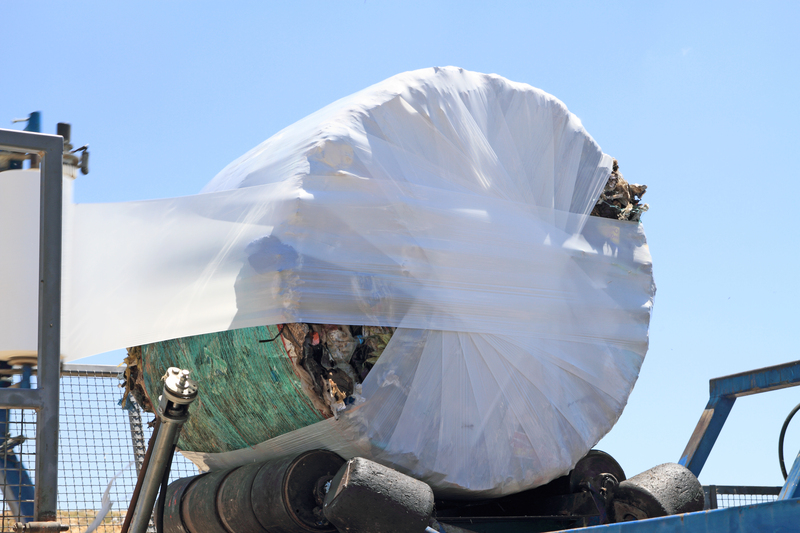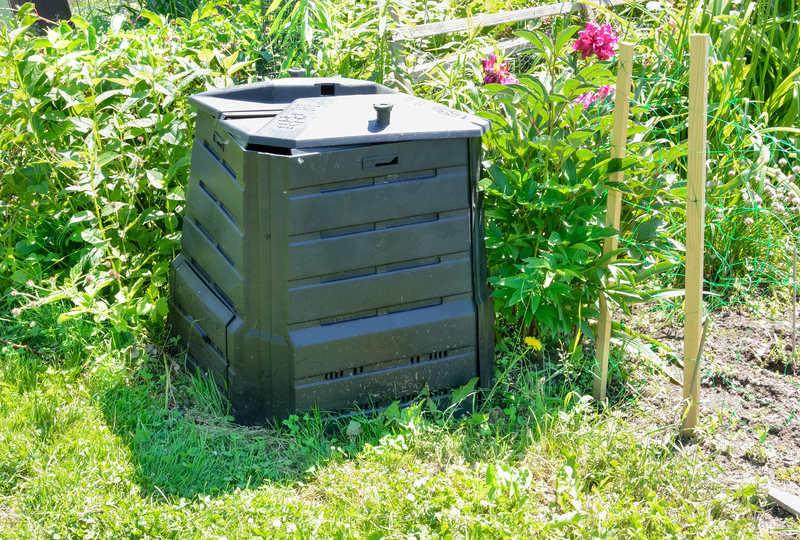Boost Office Recycling Efficiency with Simple Tips
Whether you're managing a small workspace or a large corporate building, implementing effective recycling practices can greatly boost office recycling efficiency. Embracing sustainability at work isn't just good for the planet; it also fosters a positive workplace culture and often leads to cost savings. In this comprehensive guide, we'll explore simple ways to enhance your office's recycling program, ensuring your company makes a meaningful impact.
Why Office Recycling Matters
Every year, workplaces generate tons of recyclable materials, from paper and cardboard to electronics and plastics. Recycling in the office is crucial to reduce landfill waste, lower environmental impact, and help companies meet sustainability goals. However, many businesses still struggle to make their recycling efforts as efficient as possible.
Benefits of Recycling in the Workplace
- Environmental Impact: Decreases the need for raw materials and cuts greenhouse gas emissions.
- Resource Conservation: Reduces the demand for new supplies by reusing recyclable items.
- Cost Savings: Streamlined waste management often lowers disposal fees over time.
- Employee Engagement: Fosters a culture of sustainability and responsibility.
- Corporate Image: Demonstrates commitment to sustainable practices for clients and stakeholders.

Assess Your Current Recycling Practices
Before introducing any new initiatives, take time to evaluate your office's current recycling program. Understanding what's already in place--and what isn't working--will allow you to strategically improve recycling efficiency in the workplace.
Conduct a Waste Audit
A waste audit helps identify the types and amounts of waste your office generates. Here's how to get started:
- Collect: Analyze office waste over a week to identify recyclable vs. non-recyclable materials.
- Sort: Categorize waste into materials like paper, plastics, metals, electronics, and organics.
- Assess: Pinpoint common contaminants and gaps in your current program.
- Set Goals: Use this data to create targeted efficiency-boosting recycling strategies.
Tip: Involve employees in the audit process to boost awareness and ownership of office sustainability efforts.
Simple Tips To Maximize Office Recycling Efficiency
Improving your office's recycling efficiency doesn't have to be complicated or expensive. Below you'll find a range of practical tips designed to enhance office recycling effectiveness, which you can implement immediately.
1. Place Clearly Labeled Recycling Bins
- Visibility: Ensure recycling bins are placed in accessible, high-traffic areas such as break rooms, near printers, and meeting rooms.
- Labels: Use color-coded or clearly labeled bins. For example, blue for paper, green for glass, and yellow for plastics.
- Instructions: Add visual aids or signage that shows what materials go where, including "Yes" and "No" examples.
Well-marked bins significantly reduce contamination and make it easy for everyone to do the right thing.
2. Educate and Engage Employees
- Workshops: Host regular training or workshops about recycling best practices and benefits.
- Reminders: Send periodic emails, posters, or newsletters with recycling tips and updates.
- Involve Staff: Appoint sustainability champions to motivate their workplace peers.
- Feedback: Encourage employees to share ideas on how to make recycling more efficient in the office.
An informed team is a recycling powerhouse. Engagement breeds behavioral change.
3. Minimize Single-Use Items
- Switch to Reusables: Promote refillable water bottles, mugs, and reusable plates in the break room.
- Encourage Digital Collaboration: Print only when necessary to cut down on paper waste.
- Bulk Purchasing: Buy office supplies in bulk to reduce packaging waste.
Reducing what needs to be recycled is just as critical as efficient recycling itself.
4. Set Up a Centralized Recycling Station
- Central Location: A single, well-equipped recycling station makes sorting easy and streamlines collection.
- Specialty Bins: Include bins for batteries, e-waste, ink cartridges, and light bulbs where possible.
- Easy Maintenance: Assign staff or janitorial teams to check and empty bins regularly.
A central hub prevents overflow, limits contamination, and creates a daily reminder for all staff.
5. Compost Organic Waste
- Coffee Grounds & Food Scraps: Set up a compost bin in the break room for food and coffee waste.
- Benefits: Composting diverts organics from landfill, cutting methane emissions.
- Local Services: Partner with a local composter or hauler for regular collection.
Composting can increase your total landfill diversion rate and support local agriculture.
Advanced Strategies to Increase Workplace Recycling Success
Ready to go beyond the basics? There are advanced strategies to further ramp up office recycling efficiency and turn your workplace into a model of environmental responsibility.
Implement a Zero Waste Policy
- Reduce, Reuse, Recycle: Strive to minimize all forms of waste, not just recyclables.
- Waste Hierarchy: Focus on reduction first, then reuse, recycling, composting, and recovery.
- Continuous Improvement: Regularly review data and adjust targets to approach 'zero waste'.
Zero waste policies challenge the status quo and drive continuous progress.
Partner with Green Vendors and Recyclers
- Certified Recyclers: Work with partners certified for responsible recycling and data destruction, especially for e-waste.
- Eco-Friendly Suppliers: Choose vendors with strong product stewardship and sustainable packaging.
- Community Involvement: Support local recycling or reuse programs for additional impact.
Responsible vendors help close the loop and maximize your efforts' impact.
Track and Share Your Recycling Results
- Monthly Reports: Regularly track waste diversion rates, contamination levels, and total recyclables collected.
- Celebrate Success: Share progress with employees through newsletters, meetings, or visual dashboards.
- Aim Higher: Set new, ambitious goals based on data-driven successes.
Transparent reporting keeps teams motivated and builds continuous enthusiasm.
Common Office Recycling Challenges--and How to Overcome Them
While the path to increased office recycling efficiency is straightforward, a few common obstacles can limit success. Let's look at these challenges and smart solutions to address them.
Contamination of Recycling Bins
- Problem: Non-recyclables (like food) mixed into recycling bins leads to entire batches going to landfill.
- Solution: Improve signage, provide examples of what can and can't be recycled, and conduct periodic bin checks with gentle staff reminders.
Lack of Employee Participation
- Problem: Recycling won't be effective unless everyone gets involved.
- Solution: Run engagement campaigns, create recycling competitions, and recognize top contributors.
Outdated or Inadequate Bin Infrastructure
- Problem: Insufficient or confusing bins confuse staff and reduce recycling rates.
- Solution: Upgrade to standardized, well-marked bins. Install enough units for your workspace size.
Preparation and awareness are key to sidestepping these pitfalls.
Case Study: Real-World Example of Office Recycling Success
Consider the experience of a midsize tech company that decided to optimize their recycling program with simple solutions. Here's what they did:
- Conducted a thorough waste audit and discovered high paper waste and coffee cup contamination.
- Reorganized recycling stations with clear labels and added specialty bins for e-waste and cups.
- Hosted monthly "Green Challenge" weeks, rewarding teams that reduced waste the most.
- Tracked waste metrics, reporting a 40% increase in recycling rates within 6 months and halving contamination rates.
Their story proves that small, well-executed changes can create a big impact on office recycling efficiency.

Frequently Asked Questions (FAQs) About Office Recycling
Q: What items are commonly recyclable in offices?
- Paper and cardboard
- Plastic bottles and containers (check local rules!)
- Aluminum cans and tins
- Ink cartridges and batteries (with specialty bins)
- E-waste devices like old keyboards or phones
Q: How can I encourage my coworkers to recycle more?
- Provide clear information and regular reminders.
- Make recycling convenient and accessible.
- Use incentives or friendly competitions.
Q: Is office recycling really cost-effective?
Yes! Reducing general waste reduces disposal charges and can help lower supply expenses by prioritizing reuse and bulk procurement. Some cities also offer tax credits or rebates for offices with effective recycling programs.
Conclusion: Make Recycling a Workplace Standard
By applying these easy-to-follow tips, your company can greatly enhance office recycling efficiency. Remember, ongoing education, accessible recycling stations, and clear, consistent messaging are the cornerstones of a successful program.
Start today with a few simple steps:
- Assess your current recycling efforts.
- Upgrade bin locations and labels.
- Educate your team and celebrate successes.
Stay committed to sustainability for lasting benefits--for your workplace, your community, and our planet.
For more in-depth guidance on how to boost recycling efficiency in the office or to request a free workplace waste audit, contact local sustainability consultants or check with your municipality's waste management department.